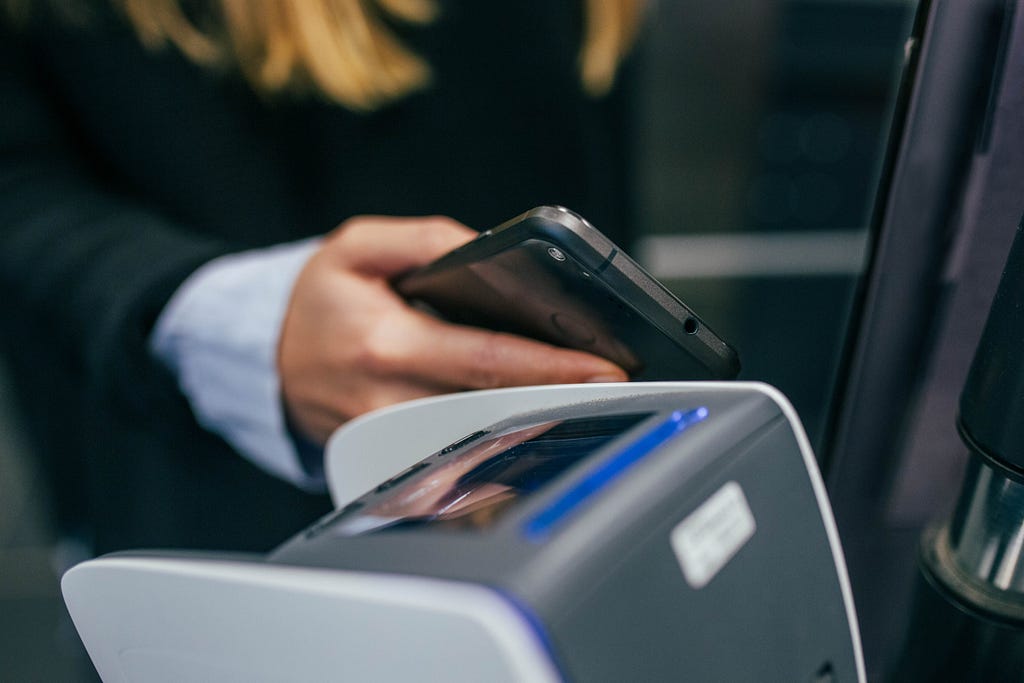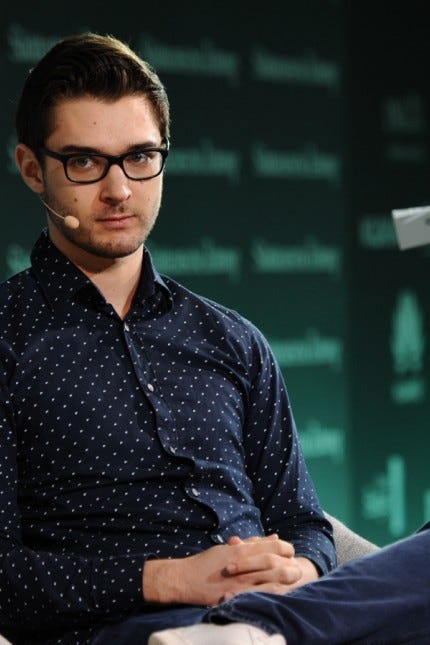Latest news about Bitcoin and all cryptocurrencies. Your daily crypto news habit.
 Photo by Campbell Boulanger on UnsplashB L O C K C H A I NLogistics and supply chains, sensitive data and security: The first blockchain applications are now ready for the market. But this is not yet a revolution.
Photo by Campbell Boulanger on UnsplashB L O C K C H A I NLogistics and supply chains, sensitive data and security: The first blockchain applications are now ready for the market. But this is not yet a revolution.
The laboratory is hidden behind thick concrete walls, the way in leads through grey security doors, past secure server rooms in Germany’s largest independent computer center. Toan Nguyen, his access card in his hand, opens the door, walks in, the noisy bubbles of the radiators fill the room. On the server blocks there are the names of IT giants, IBM, Fujitsu, and Oracle, in the corner there is a high table with red stools. For several months now, specialists from corporations and start-ups have been sitting there regularly, united in their work on the future, in the search for applications for the blockchain.
Nguyen leads business development and the cloud platform at E-Shelter, known in the industry for its data centers and home to the digital secrets of hundreds of companies here in Frankfurt-Rödelheim. With the innovation laboratory, the company wants to offer a platform where companies can try out new technologies in a protected space. At this location, Blockchain has long since become much more than a catchword; it is a technology that will play an essential role in the threshold to the networking of things. “When it comes to blockchain, we are in the same phase as we were with the Internet before the turn of the millennium,” says Nguyen.
So much is conceivable with this type of database system, which can be better described with the term “Distributed Ledger Technology” — DLT for short — than with the related term blockchain: Distributed cash books — a technology for networked computers that autonomously and forgery-proof determine the sequence of transactions. Such systems do not require central trust authorities such as banks or notaries; trust results from a large number of computers that together verify transactions and database entries. Once an entry has been made, no one can change it.
This general definition makes it clear that in the tenth year after the invention of the cryptocurrency Bitcoin, much more is at stake than the money of the future or speculation with virtual currencies in search of fast wealth.
It’s about shaping the digital change that will forever change production processes in factories, supply chains, and logistics plans, financial services and exchanges, and much of economic life.
Dominik Schiener is certain that DLT will play a central role in this. Three years ago, the entrepreneur, who comes from South Tyrol, founded the digital payment system IOTA with two partners, deposited with cryptocurrency and so much sought-after by the industry that Bosch bought a substantial share months ago and groups such as Deutsche Telekom and Volkswagen are among Schiener’s partners. With IOTA, he hopes to set a standard for the Internet of Things, in which machines can communicate autonomously with each other, in which autonomously driving cars can pay tolls and fees themselves, or in which a networked container triggers a transfer as soon as it is stowed on the intended ship. “With DLT, I no longer need any contracts for such things,” says Schiener, adding: “We are developing the technology for and with industry. There’s no other way”.
For example, with the financial industry, where the blockchain is already in use in many areas. Ralph Hamers, head of the Dutch bank ING, describes the promise of DLT solutions based on the soybean trade. “This is a very paper-heavy business,” he says, “whose basic principle hasn’t changed in hundreds of years.” On average, it takes 26 days to complete the physical delivery of a tonne of soya, which is a highly fraud-prone process. “We’re aiming for half an hour in the future,” says Hamers. In the future, it will be possible to map every property in a digital environment. A blockchain-based land register could actually already be implemented. “However, our legal infrastructure is not yet designed for this. We first have to agree on standards for conceivable applications,” says Hamers.
This will not be an easy exercise, especially in view of the highly regulated financial sector. Even the assumption that contracts created and managed by lawyers would no longer be needed with decentralized DLT solutions and autonomously communicating machines is currently nothing more than a mental exercise. “Contracts will not disappear,” believes Claudia Otto, a lawyer specializing in the Internet of Things, blockchain and IT security. “They’re just being shifted to another level.” She also considers the idea that notaries could become superfluous through technology to be absurd because their responsibility goes far beyond the certification of contracts — and cannot simply be replaced by the blockchain. “Established structures that exist today will not disappear so quickly,” Gilbert Fridgen, founder of the Fraunhofer Blockchain Laboratory, is also convinced. But they could become much more efficient.
 Photo by Jonas Leupe on Unsplash
Photo by Jonas Leupe on Unsplash
The example of the German state bank KfW currently shows how. As the umbrella organization for German development aid, the Institute works with a large number of project partners in emerging and developing countries and is constantly faced with the difficulty of managing individual projects efficiently, securely and without bribery or corruption. In a country like Mozambique, where KfW helps to build schools and finances teacher training, all project partners normally work in their own systems.
With the Blockchain, this changes now. KfW has developed a software platform called Tru Budget in its in-house Digital Office, on which all those involved can work together and constantly track which detailed step of a project is at what stage, what sums are paid for what, who makes what changes. The blockchain principle makes all processes transparent, right down to the installation of individual windows, and nobody can be manipulated subsequently or without authorization. In the ideal case, bribes would be a thing of the past. Pilot projects are already underway in Mozambique and five other countries.
KfW, banks such as ING, companies such as Bosch with industrial alliances of the major car manufacturers, energy groups, smaller and larger mechanical engineers, tour operators, ministries and central banks: no industry, no government in which DLT’s opportunities are not currently being explored. Axa insurance even offers travel insurance on a block-chain basis, which automatically pays compensation if a flight is more than two hours late without having to fill out forms.
But it will be some time before autonomous vehicles settle their own tolls until networked containers in the port make forms superfluous and parts of stock exchange trading run on a blockchain basis; in the opinion of experts, it will be some time before the multitude of ideas is translated into concrete applications. The great revolution of which so many representatives of the crypto world have spoken in recent years is still to come. Like over 20 years ago, when it was still open to what extent the Internet would change people’s lives. Just like back then, hundreds of thousands of young people worldwide are working on the further development of DLT.
Cloud expert Toan Nguyen says: “Of course everyone is now waiting to see what it has to offer. But a killer application is still missing.” He has no doubt that it will come. Personally, his day-to-day work could soon be made easier: The Innovation Lab is testing hand-held scanners that read out the hand veins for access authorization, organize them decentrally on an IOTA basis and make them available anywhere in the world. The access card hanging around Nguyen’s neck will soon be obsolete.
If you like what you read be sure to ♥ it below — as a writer it means the world. Also, have a look at my other posts :)
When The Car Pays For Itself was originally published in Hacker Noon on Medium, where people are continuing the conversation by highlighting and responding to this story.
Disclaimer
The views and opinions expressed in this article are solely those of the authors and do not reflect the views of Bitcoin Insider. Every investment and trading move involves risk - this is especially true for cryptocurrencies given their volatility. We strongly advise our readers to conduct their own research when making a decision.
